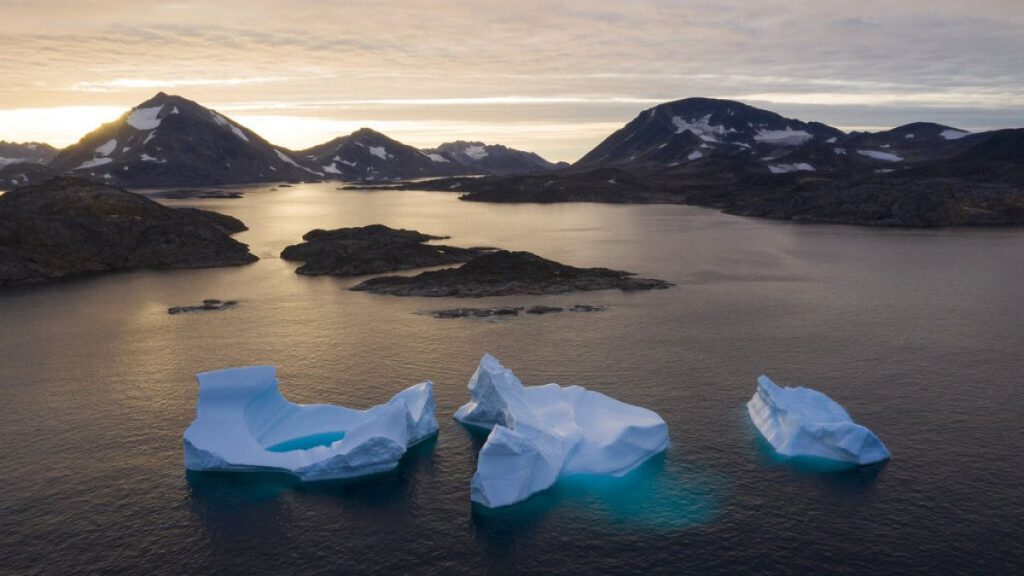Greenland, a self-governing territory within the Kingdom of Denmark, finds itself at a critical juncture, navigating the complex interplay of international interest in its vast natural resources and its own aspirations for greater autonomy. A key aspect of this evolving dynamic is the island’s rich deposits of critical raw materials, crucial for the development of clean energy technologies. The European Union, recognizing the strategic importance of these resources, has expressed a desire for increased cooperation with Greenland. However, Greenlandic politicians, particularly those from the left-wing Inuit Ataqatigiit (IA) party, are urging the EU to move beyond expressions of interest and commit to more tangible investments in Greenland’s rare earth sector, currently dominated by China. This call for deeper engagement reflects a growing desire within Greenland to diversify its partnerships and leverage its resource wealth to achieve greater economic and political independence.
The security landscape of the Arctic region further complicates Greenland’s strategic calculus. Renewed interest from major powers, including the US, Russia, and China, has heightened awareness of Greenland’s geopolitical significance. The IA party expresses concern over this escalating interest, emphasizing the need for cooperative rather than coercive approaches. While acknowledging the importance of maintaining strong ties with Denmark, Greenland’s political leaders are determined to chart their own course, seeking partnerships that align with their own interests and priorities. This includes fostering collaborations not only in resource extraction but also in areas such as defense, education, and tourism, ultimately aiming to build a more robust and diversified economy.
The IA party’s vision for Greenland’s future centers on the ultimate goal of independence from Denmark. However, they acknowledge that this is a long-term aspiration requiring careful planning and preparation. The immediate focus is on building capacity, strengthening international partnerships, and ensuring that Greenlanders have the agency to determine their own destiny. This emphasis on self-determination underpins the IA’s approach to international relations, advocating for a more balanced and respectful engagement with global powers. They seek partnerships that recognize Greenland’s right to self-determination and contribute to its sustainable development, rather than simply exploiting its resources.
Greenland’s abundant mineral resources, particularly rare earth elements, hold immense potential for transforming the island’s economy and strengthening its position in the global arena. Recognized by the European Commission as critical raw materials, these resources are essential for the development of clean energy technologies like solar panels and batteries. Greenlandic leaders see this as an opportunity to break free from dependence on traditional economic partners and forge new alliances based on mutual benefit. However, they also recognize the need for responsible resource management, ensuring that the exploitation of these resources benefits the Greenlandic people and does not come at the expense of the environment.
The delicate balance between economic development and environmental protection forms a crucial aspect of Greenland’s long-term strategy. While seeking to capitalize on the burgeoning demand for critical raw materials, Greenlandic leaders also prioritize the preservation of their unique Arctic environment. This commitment to sustainable development reflects a deep understanding of the interconnectedness between economic prosperity and environmental well-being. It underscores the need for a holistic approach to resource management, ensuring that economic growth does not come at the cost of irreversible damage to the fragile Arctic ecosystem.
The path towards greater autonomy and eventual independence for Greenland is fraught with complexities, requiring deft navigation of geopolitical interests and the balancing of competing priorities. While embracing the opportunities presented by its vast natural resources, Greenland remains steadfast in its commitment to self-determination and sustainable development. The IA party’s vision for the future emphasizes the importance of diversifying partnerships, fostering economic growth, and empowering the Greenlandic people to shape their own destiny. This vision represents a delicate balance between leveraging international interest for economic development and safeguarding Greenland’s unique cultural heritage and pristine environment.














